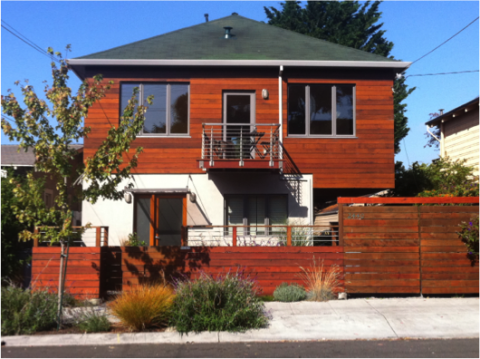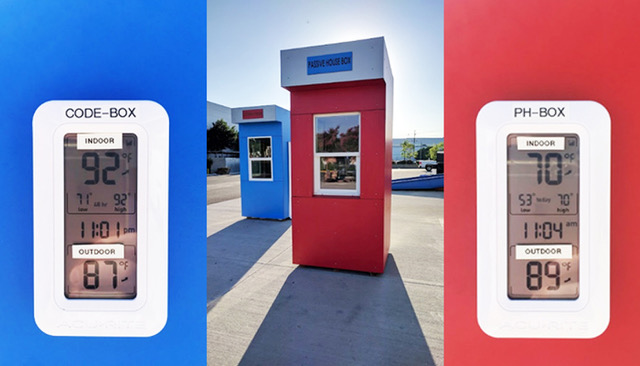The International Passive House Association (iPHA) was founded in 2010 to support the growing global Passive House community, disseminate information on the Passive House Standard and foster a greater public understanding of its significance. iPHA partners with independent Passive House organisations, called ‘affiliates’, all over the world. Over the years, iPHA has seen the number of affiliates and members grow to a massive number of 5000 members and 23 affiliates. This series of interviews highlights iPHA affiliates and their local activities and developments.
Foundation
Passive House California (PHCA) has the unique responsibility of sharing knowledge of the Passive House standard across the third largest state in the United States of America which contains 16 climate zones and a population of over 39 million. The lowest point in North America, the Badwater Basin, as well as the tallest mountain in the contiguous United States, Mt. Whitney, are both within California and present a challenge of an extremely diverse climatic zone as well as a tremendously diverse political landscape. PHCA’s mission statement of promoting awareness, understanding, and application of the Passive House Standard through education, events, and advocacy focused on professionals, policymakers, and the general public throughout California is the unifying message across the region. PHCA has been a member of iPHA since 2014 and this unity helps build stability in the thinking around the Passive House Standard and promotes how to build more comfortable buildings that also reduce the carbon footprint for the state of California.

Image Credit: Nabih, Passive House California
In 2005 a local architect, Nabih Tahan, applied the Passive House Concept to the remodel of his old bungalow in Berkeley, CA. Nabih used the experience he gained from designing and building low-energy houses while living in Austria and Ireland for 13 years. The interest generated by this remodelling effort led to the establishment of the Passive House California (PHCA) group in early 2008.
PHCA is a member-based organization steered by a board of directors. The organization is a volunteer-based organization with one part-time employee. The Board is composed of Architects, Builders, and Sustainability Design Consultants that are educated about the Passive House standard as well as the diverse regulations within the State of California. The board, through high-level working sessions, identifies major components of California’s environmental state of affairs and identifies goals for the education and promotion of the Passive House standard. Since the formation of the board major, issues tackled by PHCA are extreme drought, devastating wildfires, and most recently the Novel Coronavirus. Californians are recovering from these disasters as well as preparing for a changing future by recognizing a need for better indoor air quality, more durable structures, and highly efficient buildings that will meet the state’s energy goals of reducing carbon emissions by 40% below the 1999 standard by the year 2030. PHCA is speaking to these concerned citizens through education about the Passive House Standard. Passive House California was formally incorporated as a 501c3 non-profit corporation in 2010. PHCA members went on to help found the North American Passive House Network (NAPHN) in 2011. PHCA became an affiliate of the International Passive House Association in 2012.
Activities
PHCA has recently focused on the success found through their local community. Active board members and a diverse membership base expand the idea of ‘local’ within the large State of California. Several approaches have been employed to connect with local communities as well as empower those that wish to promote the Passive House Standard.
PHCA works to promote the education and certification of both Passive House Designers and Tradespeople. The training is hosted in a location in Northern California as well as Southern California to increase access to the knowledge of Passive House. PHCA is also working with NAPHN to steer training to an online platform that will further expand the reach of the design tool.
Each year PHCA has promoted the Passive House Open Days to showcase Passive House buildings across the state. Due to the large diverse region, the structures that are built reflect a diversity of thinking around a common design standard that models a highly efficient building. The open houses create a direct link between the desire to build a healthy environment and the products that deliver an efficient building.
The two above strategies have led to the engagement with policymakers who will ultimately influence change for the codes within California. Through the presentation of locally built passive houses in Carmel and Los Angeles a direct relationship was built with the Climate Action Compact. The education of this group is a direct product of a successful demonstration of how the Passive House Standard aligns with their goals of energy efficiency and a reduced carbon footprint.
Growth and Development
PHCA’s focus has evolved over the years and has grown into delivering a message to the larger community of leaders who are focused on climate change. PHCA has participated in the ‘largest net-zero conference’ in an attempt to communicate that passive house is aligned with the goals of the larger sustainability community.
Listening to the messaging of the modern climate action groups PHCA has incorporated the thinking of how the Passive House standard can be used to reduce the carbon footprint of a building. Secondly, PHCA is further reinforcing its commitment to the future technologies of climate change through the support of building electrification. PHCA has intentionally changed its messaging to include these two major components into its mantra with the intent of bettering the environment for everyone.
Success
PHCA hosted an ‘icebox challenge’ where attendees could see how the construction techniques of the Passive House Standard were compared to the typical detailing that meets California state energy code standards. This hands-on demonstration was exhibited at a Net Zero Conference. Aligning demonstrations with local community events has been rewarding. Another achievement is a study sponsored by Passive House California. In this study, it was shown how the Passive House Standard can be an acceptable tool for use in the California Codes. This was submitted and received as part of 2020 The Reach Code for the State of California. With each step, PHCA is making small advances in the dissemination of the Passive House Standard to the State of California.

Image Credit: Passive House California (PHCA)
Future
PHCA is launching a new website in 2021 with the intent of changing the way the members and the community access information. PHCA acknowledges that as technology changes, the board and its members need to change with it. Part of this change will be a more direct message about how to apply the Passive Standard in one’s place of business or home. The online community is a major portal to the world and PHCA has embraced this by expanding its presence on social media outlets as well as revised media campaigns for 2021.
The largest change for PHCA in 2021 will be its active role in partnering with peer sustainability organizations. By aligning with like-minded groups PHCA hopes to build inertia around goals of building more comfortable and higher performing structures that will reduce greenhouse gases, achieve a net-zero/ carbon positive future, and resilience within the state of California. PHCA hopes that unifying itself with others will be able to go further and farther because the scale of change that needs to occur is enormous and it is not achievable through singular thinking. It’s a ‘we’ solution.
Are you enjoying this new iPHA meet the affiliates series? If you are, make sure to come back every Tuesday to read about a new affiliate each time. You can find our previous interview with the Hellenic Passive House Institute here.






 Carl supports our international communication activities and is the point of contact for administrative enquiries.
Carl supports our international communication activities and is the point of contact for administrative enquiries.